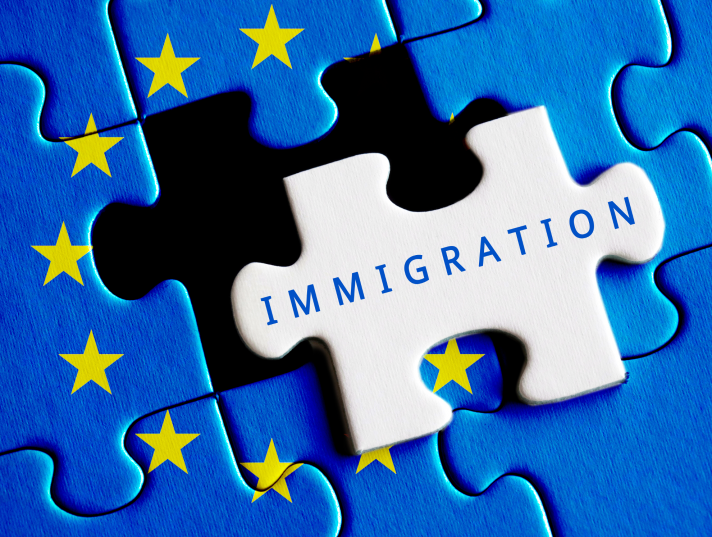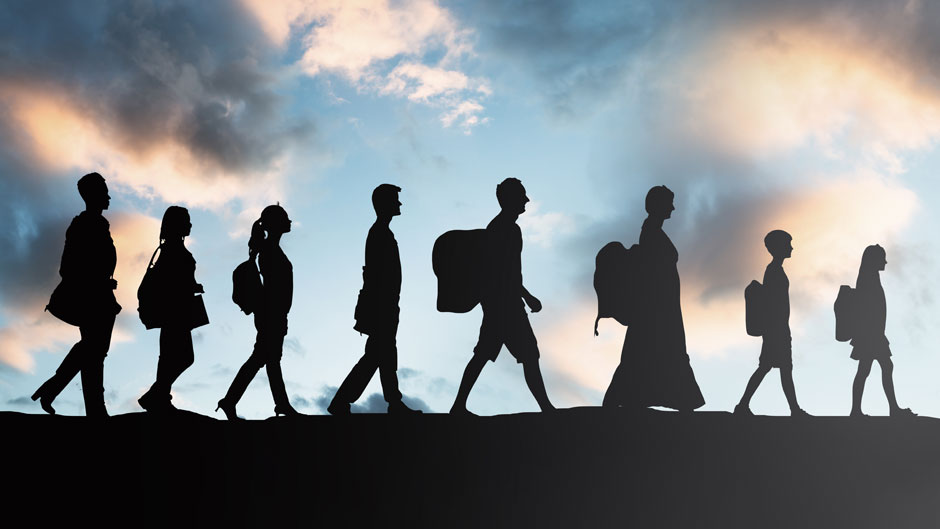E
Edmund Scanlan
E
Edmund Scanlan
AP Human Geography 🚜
320 resourcesSee Units
What is migration?
Migration is the movement of people from one place to another. Immigration is the movement of people to another country for permanent settlement. Emigration is the process of leaving one's country of origin in order to settle in another country permanently. Knowing the difference between immigration (entering a country) and emigration (leaving your country) is important. It can be very confusing so if you don't understand I recommend looking this unit over again and paying attention to the specific use of emigration and immigration.

The controversy surrounding immigration is often complex and multifaceted and can be influenced by a variety of economic, social, political, and cultural factors.
It is often debated how many immigrants should be admitted to a country, and whether or not immigrants are contributing members of society or burdens. The controversy will likely continue and continue to be debated in every country as life continues and political policies change.
Effects on the country people are immigrating to:
- Economic: Immigration will bring new workers to an area, which increases the workforce and the consumer base, therefore boosting the economy. It can also lead to competition for jobs and resources which will put pressure on wages.
- Social and cultural: Immigration can lead to increased cultural diversity, which can lead to an increased understanding and tolerance of minorities and enrich the social fabric. It can also lead to cultural conflicts and challenges for the immigrants as they try to adapt to their new community.
- Political: An influx of new migrants can lead to a change in voting patterns and political power dynamics.
- Environmental: The population density of an area can be changed which can influence the demand for housing, infrastructure, and other resources.
- Personal and Psychological: Immigration can be a stressful and challenging process. You have to leave behind your friends, family, your way of life, and more. You have to learn a new language and face discrimination as well as other challenges.

image taken from Miami News and Events
Effects on the country people are emigrating from:
- Economic: The process of people leaving a country can result in a shortage of labor in the source country, which can be problematic if the emigrants are skilled workers. This can also lead to difficulties in certain industries or sectors. This is known as brain drain.
- Social and cultural: The social and cultural fabric of the source community can change, which can lead to a loss of cultural diversity in the community.
- Political: The loss of a large number of people from a country may affect voting patterns and political power dynamics.
- Personal and psychological: The emigrants have to face numerous challenges including leaving behind their friends and family. Those who remain in the source country have to live with their loved ones leaving them. Sometimes, emigrants will send remittances, which is money earned in their new country mailed back home.
🎥 Watch: AP HUG - Population and Migration Key Concepts
Browse Study Guides By Unit
🗺Unit 1 – Thinking Geographically
👪Unit 2 – Population & Migration
🕌Unit 3 – Cultural Geography
🗳Unit 4 – Political Geography
👨🌾Unit 5 – Agriculture & Rural Land-Use
🌇Unit 6 – Cities & Urban Land-Use
💸Unit 7 – Industrial & Economic Development
✏️Frequently Asked Questions
🧐Multiple Choice Questions (MCQ)
✍️Free Response Questions (FRQ)
📆Big Reviews: Finals & Exam Prep

© 2023 Fiveable Inc. All rights reserved.